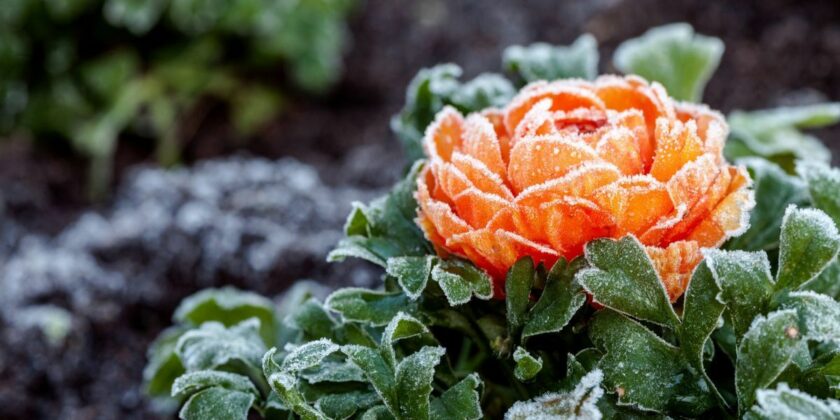Squire's Garden Centres: How to Mulch
Mark Dwelly, head gardener at Audley Villages, said: “The transition to autumn can be a challenging time for plant life, so it is important that people take extra care of their gardens and potted plants.
“Decreasing daylight, colder temperatures, fluctuating moisture levels, and the potential for frost create a stressful environment for some plants.
“Understanding these challenges and adapting the way you care for your plants during the coming months is essential to help them thrive as the climate becomes cooler. These simple tips can provide your plants with that extra bit of protection they need, giving the garden the best chance to thrive.”
When planning plants for the future, the expert recommended choosing plants which are more resistant to frost.
This includes hardy flower species such as pansies, coronillas, hellebores, and camellias which are great options to withstand the cold weather.
READ MORE: Important Christmas cacti job to do now to ‘initiate blooming’ next month
However, if gardeners do have delicate plants, it is recommended to move them indoors or to a sheltered area such as a greenhouse or undercover.
The expert noted: “For bedded or larger potted plants that can’t be moved indoors, try using purpose-built plant covers, or even a fabric like hessian to cover them overnight, especially on colder days.
“Try applying a bed of mulch, (an organic bark-life material found online and in most garden centres) to the soil surrounding your plants.
“The mulch will help to protect them by regulating the soil temperature and providing a protective layer against colder temperatures.
“Ideal for potted and bedded outdoor plants, mulch can also provide a barrier from drying winds if the weather suddenly changes.”
Don’t miss…
DIY ‘rodent repellent’ will send rats ‘sprinting in the opposite direction’[LATEST]
Boiler expert shares ‘ideal’ temperature to heat homes to ‘avoid’ pipes freezing[COMMENT]
Monty Don’s best ‘solution’ to protect all outdoor plants for £5[EXPERT]
While many people may have stopped watering their garden plants, the gardener recommended continuing to water every single day despite the temperature change.
This is because well-hydrated plants are “better equipped” to withstand temperature fluctuations, and they still need moisture to thrive.
Plants also need sunlight to grow so making sure this is maximised during the autumn and winter months is crucial for their survival.
The expert said: “As the nights draw in and the days become shorter, your plants have less opportunity to photosynthesise and benefit from direct sunlight.
“This is why it is important to check that your plants are not constantly in the shade. While it is important to protect them in sheltered areas from windier weather, always ensure that your plants still have access to the sunlight they need to thrive.
We use your sign-up to provide content in ways you’ve consented to and to improve our understanding of you. This may include adverts from us and 3rd parties based on our understanding. You can unsubscribe at any time. More info
“During the colder months, it is important to trim dead or diseased branches back to promote growth and prevent the spread of diseases.
“This can also reduce the risk of damage during storms. However, it is important not to over-prune them, as this can encourage younger growths, which may struggle to withstand colder temperatures.
“It is important to fertilise your plants as the temperature changes too, as this gives the nutrients they need to withstand the colder months.
“Ideally, give them a balanced, slow-release fertiliser, or make your own from compost, grass clippings, or even tea.
“However, avoid using too much fertiliser, as this might encourage new growths that are vulnerable to being damaged as the cold sets in.”
Source: Read Full Article


